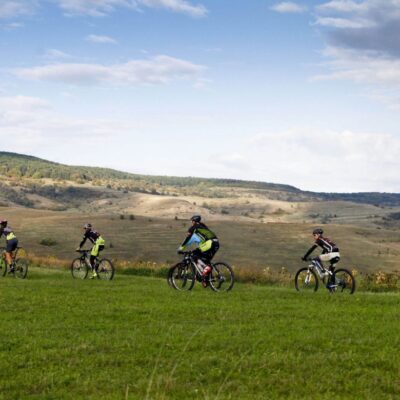SUSTAIN‑2
On 18 June 2025, the Municipal Council of Chișinău approved the implementation from 2025 to 2027 of European Union Interreg-funded project— SUSTAIN‑2 — under the ENP-funded “INTERREG NEXT Black Sea Basin” Programme.
The decision aligns with the municipal policies for tourism development and promotion, as outlined in Municipal Council Decision no. 9/13 on the “Chișinău – Tourist Capital” Tourism Development Strategy 2022–2026.
EU cross-border cooperation policies via the INTERREG NEXT Black Sea Basin Programme aim to enhance interregional collaboration among Black Sea countries, supporting shared objectives for 2021–2027.
The two projects:
-
“A Sustainability Model for Tourism” (SUSTAIN‑2) — 2025–2027,
-
“Sustainable Destinations Black Sea Network” (SUSDEST‑NET) — 2025–2028,
are aligned with Priority 1 — “Blue and Smart Region,” specifically measure 1.1: “Developing and enhancing research and innovation capacity and uptake of advanced technologies,” under the Programme’s framework.
Sustainability is a global challenge across the Black Sea region, and a transnational approach integrating different cultures, experiences, and expertise is critical. Tourism is inherently cross-border, facing challenges that transcend political and geographic boundaries. International cooperation is thus the only effective method to devise and implement solutions. Cooperation boosts best-practice sharing, visibility, competitiveness, capacity building, and governance improvement.
The tourism sector, an essential part of the regional blue economy, has a significant positive impact on employment and revenues at local, municipal, national, and private levels. It is one of the fastest-growing sectors with promising prospects.
Sustainable development is a global priority, and sustainability increasingly influences destination choice. However, most micro and small tourism operators lack awareness and tools for sustainability, resulting in significant waste generation, resource overuse (water, energy), and threats to ecosystems, business viability, and societal welfare.
General objective of SUSTAIN‑2:
To foster a more competitive and intelligent Black Sea region by supporting the blue economy, particularly tourism, through ESG (Environmental, Social, Governance) sustainability promotion for tourism stakeholders, especially in the food & beverage (F&B) sector. It aims to facilitate the adoption of sustainable practices by all operators, including small ones, through AI-driven tools and ensure lasting sustainable impact.
Through a joint Action Plan with six project partners, the initiative will remove the main barrier—the lack of tools and guidance—by using training sessions, pilots, awareness campaigns, and AI tools to guide beneficiaries on a sustainability journey.
Key outcomes (RES) and deliverables (OUTPUT) of SUSTAIN‑2:
-
RES1: Public awareness package on ESG sustainability.
-
RES2: Jointly developed F&B sustainability tools:
-
OUT-1: Simplified Sustainability Model (SSM);
-
OUT-2: AI-based Recommendation System (AIRES);
-
OUT-3: EduConnect platform for ongoing learning and collaboration.
-
-
RES3: Digital training package and transnational registry of ESG facilitators in the F&B tourism sector.
-
RES4: Pilot application based on the SSM methodology and AIRES reward scheme.
-
RES5: International conference to present and valorize results.
-
RES6: Creation of the SUSTAIN Network project partnership.
All outputs will be communicated by each partner within their jurisdictions and showcased at the final international conference. The public will be encouraged to use the tools and engage with the SUSTAIN Network partnership.
Beneficiaries (direct and indirect):
-
Public authorities at local, regional, and national levels;
-
Higher education & research institutions;
-
Training centres and schools;
-
Sectoral agencies;
-
Non-governmental organisations;
-
Business support organisations (chambers of commerce, clusters, networks);
-
Citizens in partner countries.
Project partners:
-
Lead partner: Democritus University of Thrace – School of Engineering (Komotini, Greece);
-
Municipality of Kavala (Greece);
-
Municipality of Chișinău (Republic of Moldova);
-
Union of Bulgarian Black Sea Local Authorities (Bulgaria);
-
Municipality of Üsküdar (Turkey);
-
Ukrainian Association of Business Support Centres (Ukraine).
Total project budget: EUR 1,090,064.60, including:
-
EUR 981,058.11 (90%) from the EU INTERREG fund;
-
EUR 92,556.91 (approx. 8.4%) from partners’ public contributions.
Chișinău Municipality’s budget (2025–2027): EUR 154,872.22, of which:
-
EUR 15,487.23 (10%) is the city’s non‑reimbursable contribution;
-
EUR 139,384.99 will be reimbursed from the EU funds via the lead partner.




